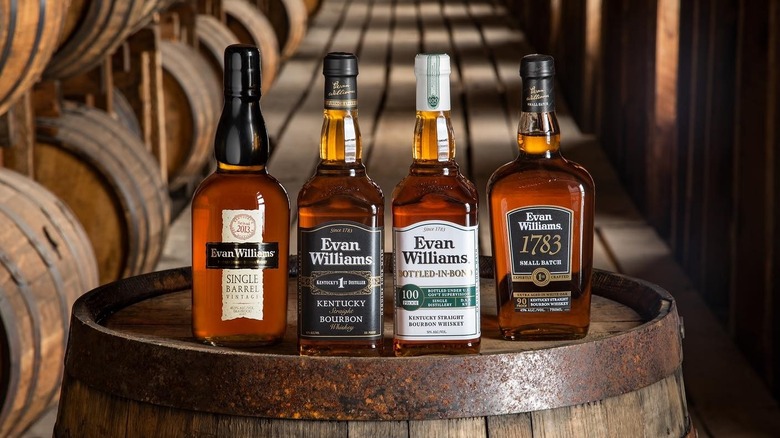
Bourbon whiskey holds a special place in the hearts of many spirits enthusiasts. This iconic American whiskey has a rich history that dates back to the early days of the United States. From its humble beginnings to its rise in popularity around the world, bourbon has played a significant role in shaping the landscape of the spirits industry. Let's delve into the fascinating journey of bourbon whiskey, from the dark days of Prohibition to its current status as a beloved spirit enjoyed by many. You can also click over here to explore more about bourbon whiskey.
The Origins of Bourbon Whiskey
Early History
- Bourbon whiskey has its roots in the late 18th century, with the first distilleries popping up in the American South.
- The exact origin of the name "bourbon" is uncertain, with theories ranging from Bourbon County in Kentucky to the French Bourbon dynasty.
- Early bourbon distillers used corn as the primary grain in their mash bills, giving bourbon its signature sweet and smooth flavor profile.
Legislative Recognition
- In 1964, the U.S. Congress recognized bourbon as a distinctive product of the United States, establishing strict regulations for its production.
- These regulations dictate that bourbon must be made from at least 51% corn, aged in new charred oak barrels, and distilled to no more than 160 proof.
The Impact of Prohibition
Rise of Bootlegging
- Prohibition, which lasted from 1920 to 1933, had a profound impact on the spirits industry, forcing many distilleries to close their doors.
- Bootleggers took advantage of the ban on alcohol sales, smuggling illicit spirits to meet the demand for whiskey among the American public.
The Rise of Moonshine
- During Prohibition, moonshine became a popular alternative to legally produced spirits, with many Americans turning to homemade whiskey for their fix.
- Moonshine was often made in hidden stills in the backwoods of Appalachia, leading to a thriving underground industry of illicit distillers.
The Bourbon Renaissance
Post-Prohibition Resurgence
- After the repeal of Prohibition in 1933, the bourbon industry experienced a resurgence as distilleries reopened and began producing whiskey once again.
- Consumer demand for bourbon grew rapidly, leading to a boom in production and the emergence of new brands in the market.
The Global Appeal of Bourbon
- Over the years, bourbon has gained a strong following not only in the United States but also around the world, with enthusiasts in countries like Japan and the UK embracing this iconic spirit.
- Bourbon's unique flavor profile, which is characterized by notes of caramel, vanilla, and oak, has contributed to its popularity among consumers looking for a smooth and flavorful whiskey.
The Modern Bourbon Industry
Craft Distilleries
- In recent years, the bourbon industry has seen a resurgence of craft distilleries, with small-batch producers creating high-quality, artisanal whiskeys that appeal to discerning consumers.
- These craft distilleries often experiment with different mash bills, aging techniques, and flavor profiles, pushing the boundaries of traditional bourbon production.
Bourbon Tourism
- Many bourbon enthusiasts have embraced bourbon tourism, visiting Kentucky's famous Bourbon Trail to tour distilleries, sample whiskeys, and learn about the history of bourbon production.
- Distilleries on the Bourbon Trail offer guided tours, tastings, and immersive experiences that allow visitors to gain a deeper appreciation for the art of bourbon-making.
Conclusion
From its humble beginnings in the American South to its global popularity today, bourbon whiskey has come a long way since the days of Prohibition. Through the ups and downs of history, bourbon has remained a beloved spirit cherished by enthusiasts around the world. As we continue to unlock the rich history of bourbon whiskey, we can appreciate the craftsmanship, tradition, and artistry that have made bourbon a timeless classic in the world of spirits.